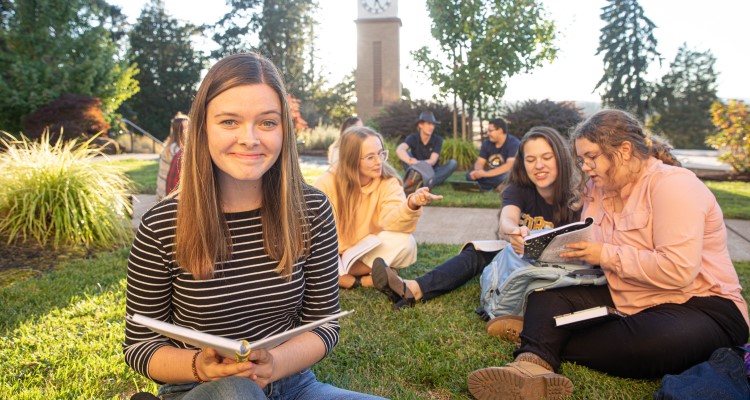Liberal Arts

The liberal arts degree challenges you to develop the skills necessary to be successful in any number of professions that require curiosity, agility, critical thinking, strong communication skills, cultural literacy, and a holistic worldview, among many other skills.
This degree is extremely flexible, giving you the opportunity to choose courses that most interest you within five broad categories: cultural literacy, biblical discernment, critical thinking, holistic worldview, and professional preparedness. You’ll take courses in communication, history, business, Bible, psychology, philosophy, and more.
“The liberal arts major anticipates the future of higher ed,” says Dr. Ryan Stark, Associate Professor of Humanities. “More stress on capacities, critical thinking, writing, and speaking, etc. Less stress on mastering large bodies of content. The beauty of the liberal arts major is maximum flexibility.”
Is Liberal Arts the right major for you?
Yes, if:
- You want to learn about a variety of topics that impact the human experience.
- You tend to think both critically and creatively.
- You enjoy communicating with others, and find that you can explain complex concepts clearly.
- You like the idea of having a well-rounded education that leaves your career options wide open.
Career Options
Employers know that people who have these crucial general skills make well-rounded, competent, valuable employees. With people often changing jobs 10-15 times in their lives, being a strong writer, speaker, and thinker will help you be prepared for wherever your career path leads.
What You’ll Learn
The liberal arts degree has five core courses that all students will take, in addition to general education requirements. These include:
- Introduction to Liberal Studies
- Fine Arts Elective
- Reading the World and Searching for God
- Internship
- Christianity and the Liberal Arts Capstone
Then, you will choose two elective courses from a long list of options in each of these broad categories:
- Cultural Literacy – literature, psychology, history, intercultural studies
- Biblical Discernment – ethics, apologetics, Bible
- Critical Thinking – logic, philosophy, theory
- Holistic Worldview – culture, discipleship, politics, music appreciation
- Professional Preparedness – communication, finance, leadership
Learn what courses you’ll need to complete your degree.
Program Outcomes
Liberal arts graduates will be curious learners who understand how to:
- Ask questions.
- Connect the dots to discover new insights.
- Apply their knowledge to make a difference in the world.
Students will be challenged to demonstrate:
- Empathy and compassion.
- Cultural understanding.
- Biblical literacy.
- Strong critical thinking and problem-solving skills.
- Stewardship.
- Excellent written and oral communication skills.
- Project management abilities.









